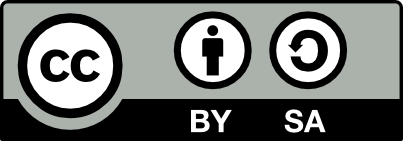Moral Capital in the Game Field: Conversion and Accumulation
cytuj
pobierz pliki
RIS BIB ENDNOTEChoose format
RIS BIB ENDNOTEMoral Capital in the Game Field: Conversion and Accumulation
Publication date: 20.12.2018
Zoon Politikon, 2018, Special Issue 2018, pp. 156 - 177
https://doi.org/10.4467/2543408XZOP.18.008.10064Authors
Moral Capital in the Game Field: Conversion and Accumulation
The paper recognizes mechanisms of capital conversion among given social games, which allows in turn to explain the process of commodification of morality. Conclusions depicting the structure of relations between the financial and moral capitals are used to analyse two practical examples: the concepts of SDG and CSR. The paper proposes a useful way of addressing phenomena on the borderline of economics and ethics, which allows to formulate further research problems.
This Article is made in Open Access, available under a Creative Commons Attribution-Share Alike 4.0 license.
https://creativecommons.org/licenses/by-sa/4.0/legalcode.pl
This article is a translated and modified version of the text that was published in the previous issue of “Zoon Politikon”. See:
Roland Zarzycki, Kapitał moralny w polu gry: transfer i akumulacja, "Zoon Politikon" (6) 2015, DOI:10.19247/ZOON201511.
Berne E. (2016), Games People Play, Penguin Books Ltd, London
Bourdieu P. (1998), Practical Reason: On the Theory of Action, Stanford University Press, Stanford
Bourdieu P. (1984), Distinction. A Social Critique of the Judgement of Taste, Harvard University Press, Cambridge
Bourdieu P., Wacquant L. (1992), An Invitation to Reflexive Sociology, University of Chicago Press–Polity, Chcago
CentrumCSR.PL (2013), Brudny zysk [Dirty Profit], Warszawa, http://www.csrinfo.org/wp-content/uploads/2016/07/raport_brudny-zysk-2013.pdf
Coulby H., Collinson H. (2014), Tax Justice Toolkit. Understanding Tax and Development, European Network on Debt and Development, Brussels
The Elephant in the Room. How to Finance our Future? (2014), Dossani S., Ege A. (Eds.), Action Aid International, Johannesburg, http://www.actionaid.org/publications/elephant-room-how-finance-our-future
EU Development Aid and the Millennium Development Goals. Report (2013), Special Eurobarometer 405, http://ec.europa.eu/commfrontoffice/publicopinion/archives/ebs/ebs_405_en.pdf
Foucault M. (1971), Orders of discourse, “Social Science Information” Vol. 10, No. 2, https://doi.org/10.1177/053901847101000201
Fritz T. (2015), International Investment Agreements Under Scrutiny, Traidcraft, Gateshead
Gadamer H.-G. (1986), The Relevance of the Beautiful and other essays, Cambridge University Press, Cambridge
Global Business Barometer (2007), The big issue, Economist Intelligence Unit, an online survey of 1,192 global executives, Nov-Dec 2007
“The Guardian” (2015), What Have the Millennium Development Goals Achieved?, https://www.theguardian.com/global-development/datablog/2015/jul/06/what-millennium-development-goals-achieved-mdgs
Haidt J. (2012), The Righteous Mind, Pantheon Books–Random House, New York
Harris R., Provost C. (2013), Millennium development goals: big ideas, broken promises?, “The Guardian” September 24
Huizinga J. (2016), Homo ludens: A Study of the Play-Element in Culture, Angelico Press, Tacoma
Investing in Development. A practical Plan to Achieve the Millennium Development Goals (2005), UN Report, (Ed.) Sachs J., United Nations Develop-ment Project, Earthscan, London
Kane J. (2001), The Politics of Moral Capital, Cambridge University Press, Cambridge
Klein N. (2010), No logo, Harper Collins Publishers, London
MacLeod J. (1995), Ain't No Makin' It: Aspirations and Attainment in a Low Income Neighbourhood, 2nd ed., Westview Press, Boulder
Mills C.W. (2000), The Power Elite, Oxford University Press, New York
Nietzsche F. (2009), Thus Spoke Zarathustra, Oxford University Press, Oxford
Ossowska M. (1971), Social determinants of moral ideas, University of Pennsylvania Press–Routledge & Kegan Paul, Philadelphia–London/New York
Petronzio M. (2014), Consumers Are Willing to Pay More for Sustainability, Mashable, https://mashable.com/2014/06/30/sustainability-consumers/?europe=true
Sztompka P. (2015), Kapitał moralny: brakujące ogniwo naszego rozwoju [Moral capital: the missing link of our development], „Rzeczpospolita”, October 5, http://archiwum.rp.pl/artykul/1288282-Kapital-moralny:-brakujace-ogniwo-naszego-rozwoju.html
Turner V. (1974), Dramas, Fields, and Metaphors: Symbolic Action in Human Society, Cornell University Press, Ithaca
United Nations Millennium Declaration (2000), UN General Assembly Resolu-tion, UN A/Res/55/2, http://www.un.org/millennium/declaration/ares552e.htm
Zarzycki R. (2013), Information inflation and spectacularization of meanings as sources of hyperreality, (in:) Excess and Lack, (Eds.) Dąbrowska K., Huculak Ł., Jernajczyk J., Skowron B., Zakrzewska M., Zarzycki R., Wrocław Academic Hub, Wrocław
Zarzycki R. (2015), Światowa Organizacja Głodu [The World Huger Organization], Institute of Global Responsibility, Warszawa
Information: Zoon Politikon, 2018, Special Issue 2018, pp. 156 - 177
Article type: Original article
Titles:
Moral Capital in the Game Field: Conversion and Accumulation
Moral Capital in the Game Field: Conversion and Accumulation
Collegium Civitas
Published at: 20.12.2018
Article status: Open
Licence: CC BY-SA

Percentage share of authors:
Article corrections:
-Publication languages:
EnglishView count: 1000
Number of downloads: 955